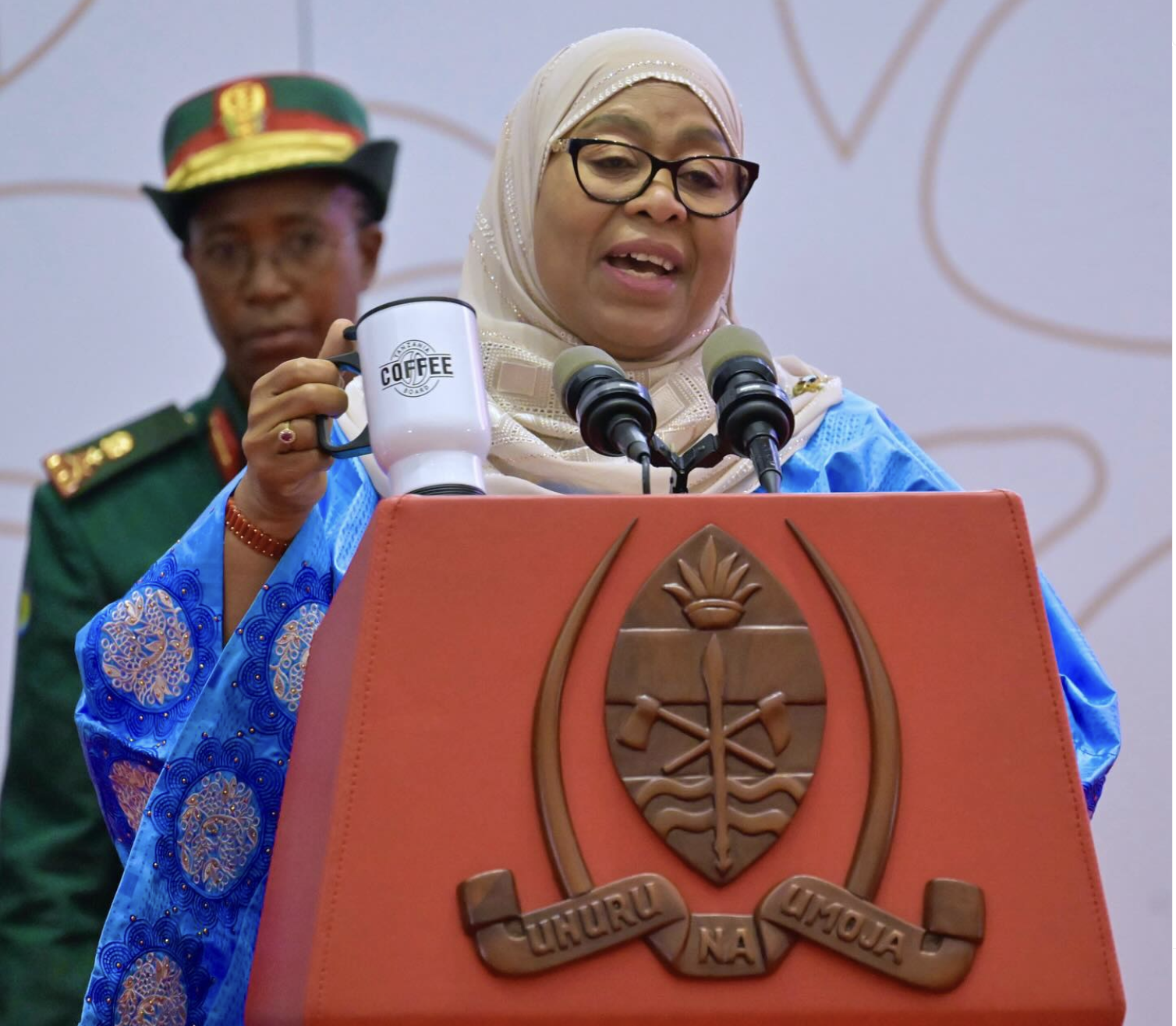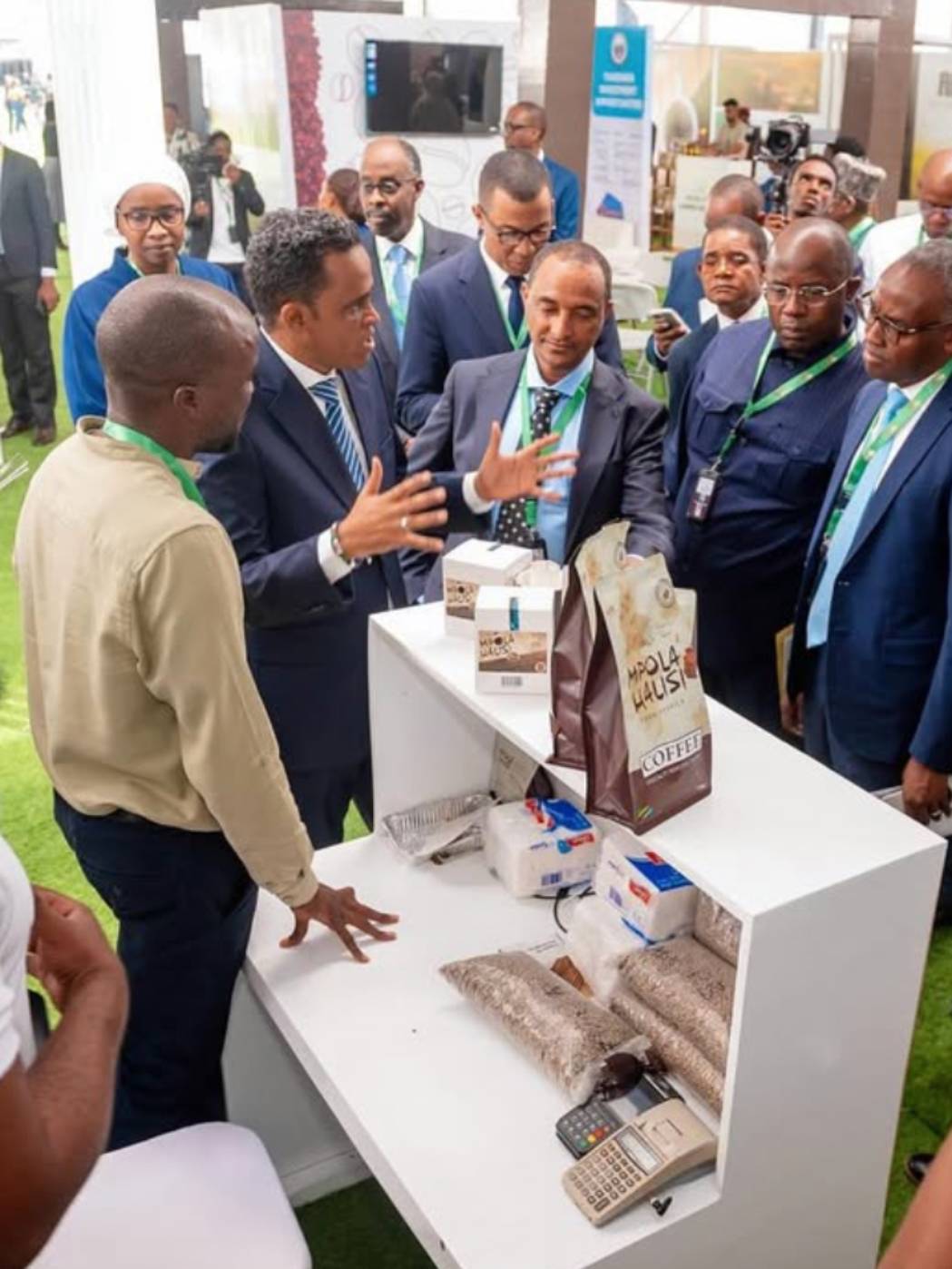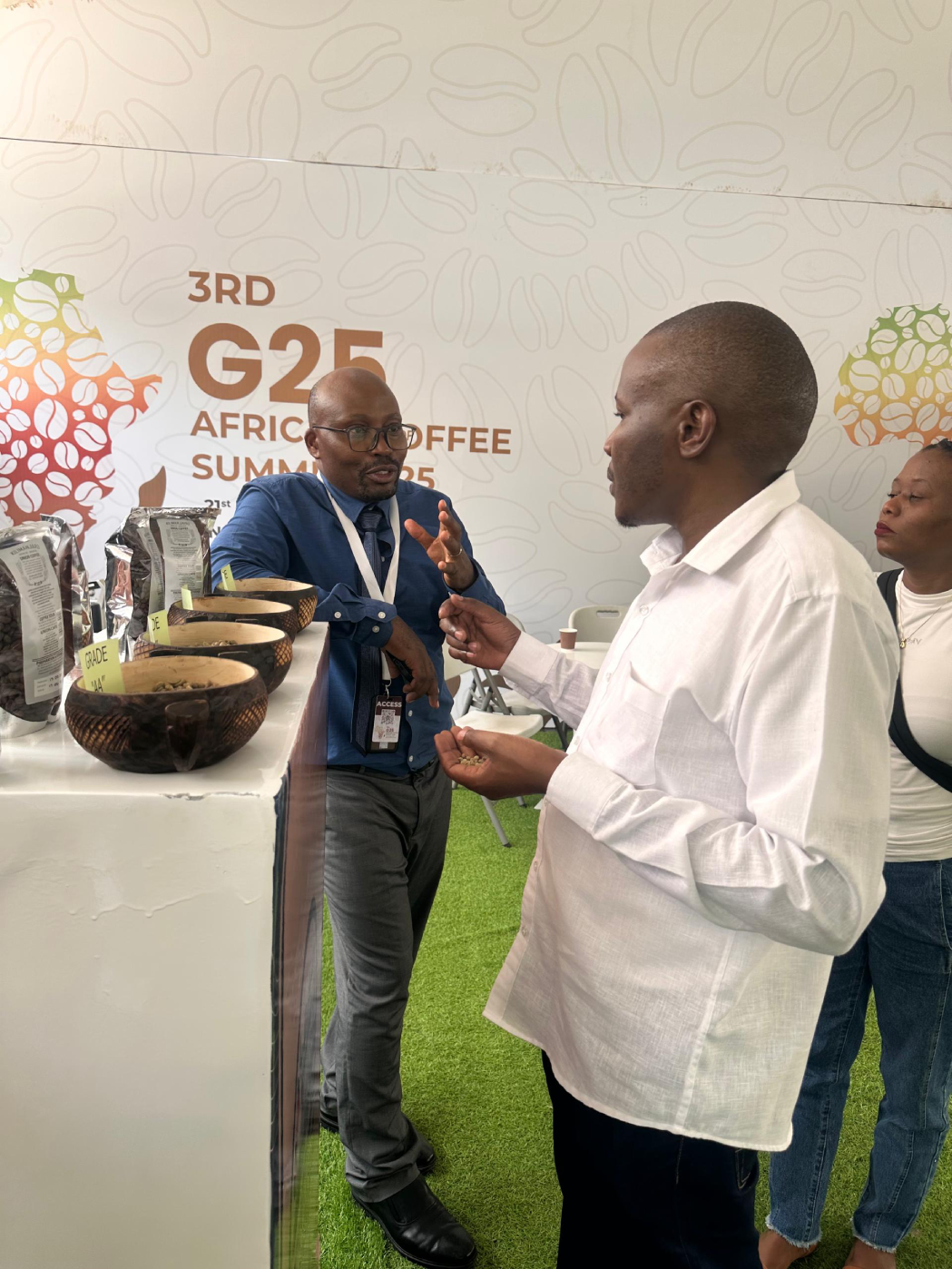The 3rd G25 African Coffee Summit, held in Dar es Salaam from 21st to 22nd February 2025, brought together key stakeholders from across the African coffee value chain to discuss innovative strategies, sustainable practices, and collaborative efforts to boost the continent’s coffee industry. The summit, themed “Transforming Africa’s Coffee Sector: Innovation, Sustainability, and Inclusive Growth,” attracted over 1,000 delegates, including coffee farmers, exporters, policymakers, researchers, and international buyers.
Organized by the G25 African Coffee Platform, the summit aimed to address critical challenges facing the African coffee industry, such as climate change, low productivity, and limited access to global markets. It also sought to highlight opportunities for value addition, youth engagement, and technological advancements in the sector.
The summit was officially opened by Tanzanian President Samia Suluhu Hassan, who emphasized the importance of coffee as a key driver of economic growth in Africa. She stated, “Coffee is not just a crop; it is a livelihood for millions of Africans. By investing in innovation and sustainable practices, we can transform this sector and improve the lives of our people.” President Hassan highlighted Tanzania’s commitment to increasing coffee production and improving the livelihoods of smallholder farmers. She announced government initiatives to provide subsidized inputs, access to credit, and training programs for farmers, with a goal to double coffee production by 2030 and position Tanzania as a leading exporter of high-quality coffee.

The Minister of Agriculture, Mr. Hussein Bashe, echoed the President’s sentiments, emphasizing the need for modernization and value addition in the coffee sector. He stressed the importance of moving beyond exporting raw coffee beans and focusing on processing and packaging to capture more value from the global market. Mr. Bashe revealed that Tanzania’s coffee production currently stands at 70,000 metric tons annually, contributing significantly to the country’s GDP. He projected a 10% annual growth rate in coffee production over the next five years, driven by government support, private sector investment, and the adoption of modern farming techniques.
Other notable speakers included the African Union Commissioner for Agriculture, Josefa Sacko, and the Executive Director of the International Coffee Organization, Vanusia Nogueira. Both highlighted the need for collective action to address challenges such as climate change and market volatility. They called for increased collaboration among African coffee-producing countries to strengthen the continent’s position in the global coffee market.


The summit featured over 20 panel discussions and workshops covering a wide range of topics, including climate-smart coffee farming techniques, empowering women and youth in the coffee value chain, leveraging digital technologies for market access and traceability, and strategies for increasing Africa’s share in the global coffee market. One of the most anticipated sessions focused on the role of blockchain technology in ensuring transparency and fair pricing for coffee farmers. Experts demonstrated how blockchain can help farmers track their produce from farm to cup, ensuring they receive a fair share of the profits.
Over 100 exhibitors from across Africa showcased their products, ranging from specialty coffees to cutting-edge farming equipment. The exhibition provided a platform for networking and forging partnerships between farmers, exporters, and international buyers. A major highlight of the summit was the launch of the African Coffee Innovation Fund, a $50 million initiative aimed at supporting research and development in the coffee sector. The fund will focus on projects related to climate resilience, pest control, and value addition. The summit concluded with an awards ceremony recognizing outstanding contributions to the African coffee industry. Awards were given in categories such as Best Sustainable Coffee Farm, Best Women-Led Coffee Cooperative, and Best Innovation in Coffee Processing.
Tanzania is one of Africa’s leading coffee producers, with coffee being a major export crop. According to the Tanzania Coffee Board, the country currently produces approximately 70,000 metric tons of coffee annually, contributing over $150 million to the national economy. Arabica coffee accounts for about 70% of production, while Robusta makes up the remaining 30%. The government has set an ambitious target to double coffee production to 140,000 metric tons by 2030. This growth is expected to be driven by increased investment in modern farming techniques and technology, expansion of coffee cultivation areas, enhanced support for smallholder farmers through training and access to finance, and the promotion of value addition and processing within the country.
As the new coffee season approaches, starting in May 2025, stakeholders are optimistic about a strong harvest. The season is expected to benefit from favorable weather conditions and the implementation of new farming techniques discussed at the summit. LICO Global, one of Tanzania’s leading coffee exporters, expressed enthusiasm for the upcoming season. The company is looking forward to collaborating with foreign buyers to export high-quality Arabica and Robusta coffee beans. “We are committed to delivering premium coffee that meets international standards,” said a representative from LICO Global. “This season, we aim to strengthen our partnerships with global buyers and showcase the unique flavors of Tanzanian coffee.”
The 3rd G25 African Coffee Summit concluded with the adoption of the Dar es Salaam Declaration, a roadmap for transforming Africa’s coffee sector. Key commitments include increasing investment in research and development, promoting climate-smart agriculture practices, enhancing access to finance for smallholder farmers, and strengthening regional and international partnerships. Delegates left the summit optimistic about the future of Africa’s coffee industry, with many expressing confidence that the continent is poised to become a global leader in sustainable and high-quality coffee production.
As the curtains fell on the 3rd G25 African Coffee Summit, Dar es Salaam solidified its position as a hub for coffee innovation and collaboration, setting the stage for a brighter future for Africa’s coffee farmers and stakeholders.

